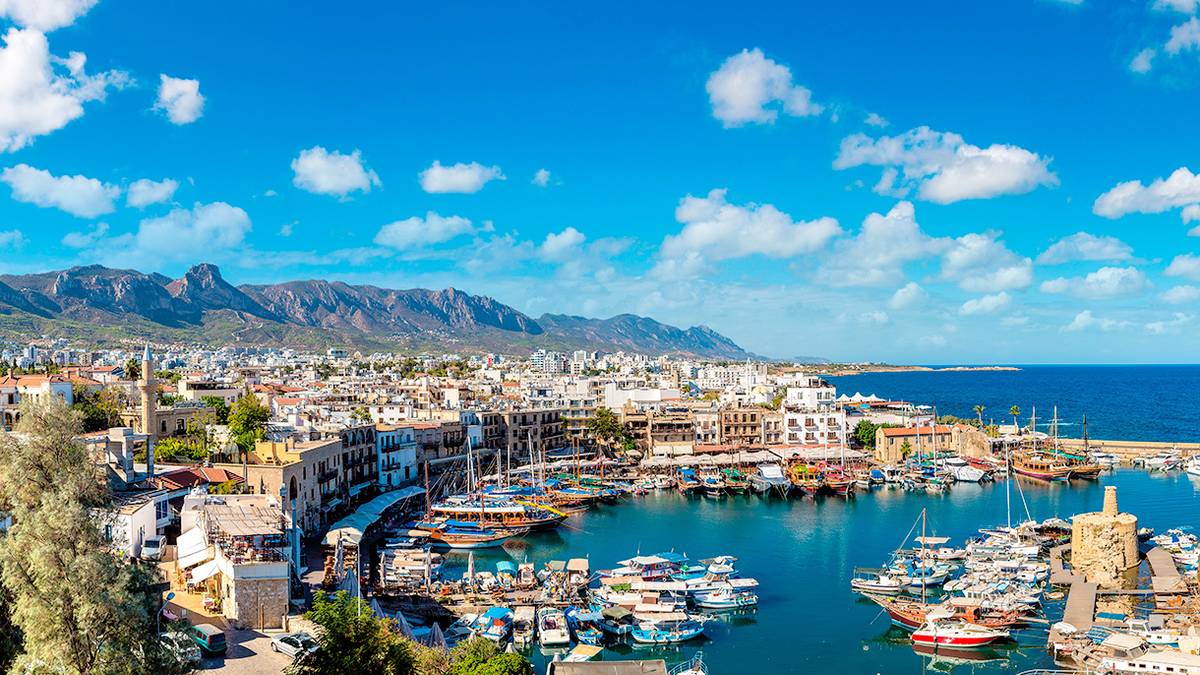Make money online, spend in Cyprus
“Welcome to the IT party. Everyone came here to make new acquaintances. Let's talk, ”says a bearded man with a glass of red wine. For a year and a half, Russian IT specialists have been gathering on Wednesdays in one of the local cafes in Limassol.
The networking meetings were initiated by 44-year-old Oleg Reshetnikov from Rostov region, who three and a half years ago moved with his wife and two children to live in Cyprus. “This is the 70th meeting in a row. During all this time, representatives of 400 companies have visited us 3000 times. People lived here for years and did not know that there were so many companies in the IT industry. Now not only Russians come to us, but also Englishmen, Spaniards, and Cypriots themselves,” says Oleg, founder of PromoRich agency for the promotion of mobile applications.
After the financial crisis, the authorities of the former offshore country took measures to restore the economy, which also affected the IT industry. According to the IP Box tax regime, introduced in 2016 for a period of five years, all companies with intellectual property, when starting a business in Cyprus, are exempt from taxes on 80% of the profits. The rest is subject to a low rate of 12.5%. In addition to benefits, there is no income tax on dividends in the first 17 years of an entrepreneur's life in Cyprus. So the island has recently become a "silicon paradise". Although if you ask a Russian IT specialist, how long has he been in Cyprus, you can hear in response: “Long time. Two years". Apparently, many take root here very quickly.
In addition to low taxes, Russian-speaking IT specialists are attracted by the opportunity to easily obtain a residence permit. For those who come for hire, the documents are drawn up by the companies themselves. “Due to the lack of personnel in the local market, this procedure is done without much difficulty,” says the head of one of the local firms. Many IT specialists who can work remotely come to Cyprus just to live, or rather spend money earned on Internet. They receive a residence permit without the right to work. To do this, you need to confirm the annual income of 30 thousand euros and have 5,000 euros of money in the account.
“I am not tied to a specific country. Cyprus is a comfortable place to live. You can't just come to Europe to live. And here you can. I have an account with a local bank, where money is received from abroad,” says Oleg Reshetnikov.
He prefers to enter the world market through his Cypriot company. It is difficult for a Russian company to settle accounts with foreign counterparties, but also to protect its intellectual and trade rights, the entrepreneur explains. “Anyway, in Russia you cannot plan anything for the year ahead, because everything can simply change. And stable rules allow you to plan. Cyprus is very convenient in this sense,” adds Oleg Reshetnikov.
True, over the past few years, the rules in Cyprus have become stricter. Under pressure from the EU on the island to combat money laundering, they tightened controls on the opening of companies and bank accounts. As you know, since the early 1990s, Cyprus has been one of the most attractive jurisdictions for Russian business. Companies often registered here in order to hide the names of the owners or to avoid taxes. But IT specialists are not afraid of tightening control at all.
“Now it has become stricter, more questions are asked, and documents are required, but this does not bother us, everything is transparent with us. People are interested that there are no toxic ties. When the money is transparent, accurately received, then there are no questions. The accounts of those who could not explain the type of their business activities and the origin of the money are closed. Investors are not discouraged by this strictness, because they are interested in transparency and safety. And they are still attracted by tax benefits and a good climate,” says the founder of PromoRich Oleg Reshetnikov.
“They started with oil workers, and now moved on to IT specialists"
Ironically, the introduction of new tax incentives in Cyprus coincided with the tightening of legislation in Russia, which also led to the massive relocation of IT specialists. Since the beginning of last year, a law has come into force in the Russian Federation obliging foreign companies to pay VAT, which is called the "tax on Google". In addition, in 2016, the so-called Yarovaya package was adopted, which, in particular, obliges telephone operators and Internet providers to store metadata for six months. Another driving force for the migration of IT companies to Cyprus was the deoffshorization law, which forces companies to declare Russia as a profit center, while earlier companies could have an office on the island and pay taxes here.
“But there is another problem in Russia. The security forces. They "nightmare" businesses and are engaged in racketeering under the disguise of the Government. The food supply is decreasing, but the appetite has not changed. Previously, this concerned oil workers, but now it has come down to IT specialists,” says Vadim Gaidukevich, who was at the origins of the creation of one of the largest companies Wargaming, whose headquarters is located in Nicosia.
Now he is working on the development of his own startup on the project management system Targetprocess and says that he can do business in Cyprus, being sure that no one here will take it away.
Link to the original source https://www.rfi.fr/ru/rossiya/20181002-aiti-pati-kak-kipr-stal-it-raem-dlya-rossiyan
